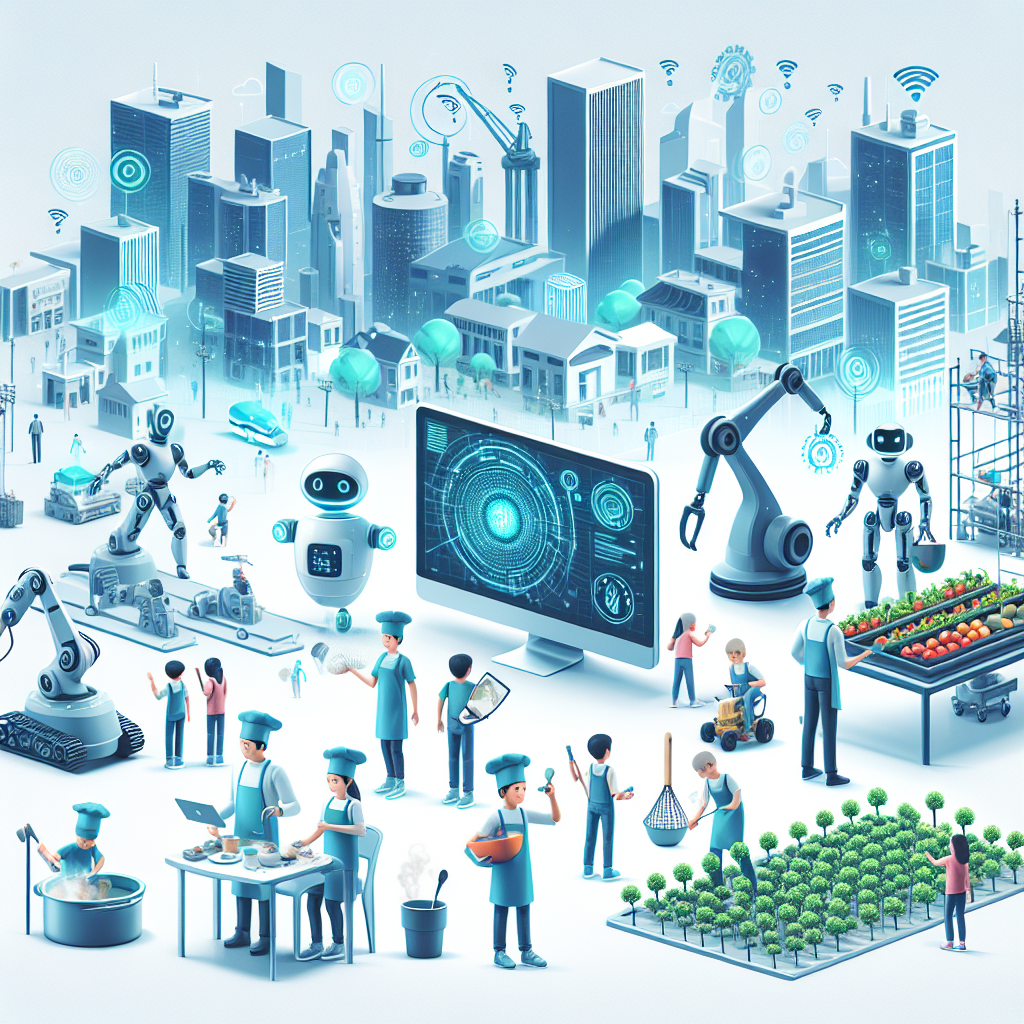The Future of Work in an AI-Democratized World
In recent years, artificial intelligence (AI) has rapidly transformed industries and workplaces around the world. From automation and data analysis to machine learning and natural language processing, AI technologies have become essential tools for businesses looking to stay competitive in the digital age. As AI continues to evolve and democratize, the future of work is being shaped in new and innovative ways.
AI democratization refers to the process of making AI technologies more accessible and affordable to individuals and organizations of all sizes. In the past, AI was primarily the domain of large tech companies with the resources to develop and deploy complex AI systems. However, as AI technologies have become more advanced and user-friendly, they are now being adopted by a wider range of businesses and industries.
One of the key benefits of AI democratization is the ability to automate routine and repetitive tasks, freeing up employees to focus on more strategic and creative work. For example, AI-powered chatbots can handle customer inquiries and support tickets, while machine learning algorithms can analyze massive amounts of data to uncover valuable insights. This automation not only increases efficiency and productivity but also allows employees to take on more challenging and fulfilling roles within the organization.
Another important aspect of AI democratization is the potential to improve decision-making and problem-solving. AI technologies can process and analyze vast amounts of data at speeds that humans simply cannot match. This enables businesses to make more informed and data-driven decisions, leading to better outcomes and increased competitiveness. By harnessing the power of AI, organizations can gain a deeper understanding of their customers, markets, and competitors, allowing them to stay ahead of the curve in an increasingly complex and fast-paced business environment.
AI democratization also has the potential to create new opportunities for innovation and entrepreneurship. With the rise of AI-powered tools and platforms, individuals and small businesses can now access cutting-edge technologies that were once out of reach. This opens up new possibilities for startups and innovators to develop and deploy AI solutions that address a wide range of challenges and opportunities. From healthcare and finance to education and entertainment, AI democratization is driving a wave of innovation that is reshaping industries and creating new economic opportunities.
However, the rise of AI democratization also raises important questions and concerns about the future of work. As AI technologies become more widespread and powerful, there is growing anxiety about the impact on jobs and employment. Some fear that AI automation will lead to mass unemployment as machines take over tasks that were once performed by humans. While it is true that some jobs may be at risk of automation, AI also has the potential to create new job opportunities and transform existing roles in positive ways.
To address these concerns, businesses and policymakers must take a proactive approach to managing the impact of AI on the workforce. This includes investing in training and upskilling programs to help employees adapt to the changing nature of work. By providing workers with the skills and knowledge they need to succeed in an AI-driven world, organizations can ensure that their workforce remains competitive and resilient in the face of technological change.
In addition, businesses should focus on fostering a culture of innovation and creativity that empowers employees to leverage AI technologies in new and innovative ways. By encouraging experimentation and collaboration, organizations can harness the full potential of AI to drive growth and innovation. This approach not only benefits businesses but also creates a more engaging and fulfilling work environment for employees.
Overall, the future of work in an AI-democratized world is both exciting and challenging. As AI technologies continue to evolve and become more accessible, businesses must adapt and embrace the opportunities that AI presents. By investing in training, fostering innovation, and prioritizing the well-being of their workforce, organizations can navigate the changing landscape of work and thrive in the digital age.
FAQs
Q: Will AI automation replace all human jobs?
A: While AI automation has the potential to disrupt certain industries and roles, it is unlikely to replace all human jobs. Instead, AI is more likely to augment human capabilities and create new job opportunities in areas such as data analysis, machine learning, and AI programming.
Q: How can businesses prepare for the impact of AI on the workforce?
A: Businesses can prepare for the impact of AI on the workforce by investing in training and upskilling programs, fostering a culture of innovation, and prioritizing employee well-being. By empowering employees to adapt to the changing nature of work and leveraging AI technologies in new and creative ways, organizations can thrive in an AI-democratized world.
Q: What are some examples of AI technologies that are democratizing the workplace?
A: Some examples of AI technologies that are democratizing the workplace include chatbots for customer service, machine learning algorithms for data analysis, and natural language processing for content generation. These tools are making AI more accessible and affordable to businesses of all sizes, driving innovation and efficiency in the workplace.
Q: How can individuals and small businesses benefit from AI democratization?
A: Individuals and small businesses can benefit from AI democratization by accessing cutting-edge AI technologies that were once out of reach. By leveraging AI tools and platforms, individuals and small businesses can improve efficiency, drive innovation, and create new economic opportunities in a variety of industries.

